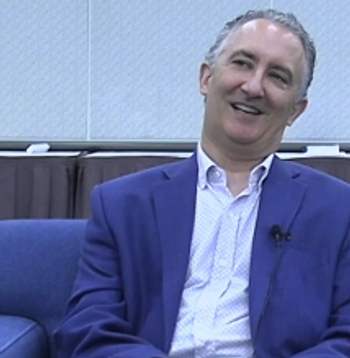
Documentation That DSM-5 Publication Must Be Delayed
My recent blog stimulated 2 interesting responses that illustrate the stark contrast between DSM-5 fantasy and DSM-5 reality. Together they document why publication must be delayed if DSM-5 is to be set right.
Last week, I wrote that DSM-5 is so far behind schedule it can’t possibly produce a usable document in time for its planned publication date in May 2013.1
Re DSM-5 delays, here is a telling statement made by Dr Darrel Regier, its Vice Chair, on March 9, 2010: “We have just released draft criteria on a website on February 10th at dsm5.org. And we’ll be having a field trial starting in July of this year. We’ll then have another revision based on field trial results going into a second revision or second field trial in July of 2011. As a result, we will not have our final recommendations for the DSM-V probably until early 2011.”
She continues,
Please note the dates. Dr Regier’s promised timetable has been missed by more than a year-we still don’t have final recommendations.
Dayle Jones, PhD, is head of the Task Force of the American Counseling Association that monitors DSM-5. She sent in a timeline comparing DSM-5 promised deadlines with actual delivery dates:
The DSM-5 academic/large clinic field trials were designed to have two phases. Phase 1 was first scheduled to begin in June 2009, but had to be postponed for a year because the criteria sets were not ready. The timetable for field trial completion was unrealistic from the start and not surprisingly the end dates have been repeatedly postponed from early 2010 to early 2011, and we’re now already into 2012 with no end in sight. Phase 2, originally scheduled for September 2011 to February 2012, was to re-test those diagnoses that did poorly in Phase 1 and had to be revised. The phase 2 trials were quietly canceled. We still don’t have results from the phase 1 field trials, but the APA leadership has warned us that we must accept reliabilities that are barely better than chance. Without the second stage, uncorrected problem diagnoses will be included in DSM-5.
The separate clinician field trial has been an even worse disaster. Clinicians were originally scheduled to be trained by August 2010, enrolling patients no later than late November 2010, and ending by February, 2011. Training was finally completed 18 months late in December 2011, which means the earliest these trials could possibly end is June 2012-well after most DSM-5 final decisions will have been made. Furthermore, of the over 5000 clinicians who registered to participate, only 70 (1.4%) have begun enrolling patients for the field trial. My guess is that like academic/large clinic Phase 2 field trial, poor planning and disorganization will force cancellation.
Dr Jones concludes,
In my opinion, there is no process and not enough time left to ensure that DSM-5 will attain high enough quality to be used by counselors. Fortunately, we can always bypass it by using ICD-10-CM.
Sobering stuff. Its constant procrastination has at last caught up with DSM-5. Having fallen so far behind schedule, DSM-5 abruptly dropped the second stage of field-testing-without public comment or justification or discussion of what would be the effects on quality and reliability. In fact, the second stage of the field trials was perhaps the most crucial step in the entire DSM-5 process-a last chance for sorely needed quality control to bring a lagging DSM-5 up to acceptable standards. The DSM-5 proposals that were weak performers in the first stage were supposed to be rewritten and retested in the second to ensure that they deserved to be included in the manual.
The American Psychiatric Association (APA) is now stuck with the most unpalatable of choices-protecting the quality of DSM-5 versus protecting the publishing profits to be gained by premature publication. Given all the delays, it can’t possibly do both-a quality DSM-5 cannot be delivered in May 2013.
All along, it was predictable (and predicted), that DSM-5 disorganization would lead to a mad, careless dash at the end. The DSM’s have become far too important to be done in this slapdash way-the high cost to users and the public of this rush to print is unacceptable. Unless publication is delayed, APA will be offering us official DSM-5 criteria that are poorly written, inadequately tested, and of low reliability. The proper alternative is clear: APA should delay publication of DSM-5 until it can get the job done right. Public trust should always trump publishing profits.
Let’s close with a worrying and all too illustrative quote from Dr Regier,
References1. Frances A. APA should delay publication of DSM-5. January 31, 2012. Psychiatr Times.http://www.psychiatrictimes.com/blog/frances/content/article/10168/2024394.
2. Jabr F. Redefining autism: will new DSM-5 Criteria for ASD exclude some people? January 30, 2012. Sci Am.
Newsletter
Receive trusted psychiatric news, expert analysis, and clinical insights — subscribe today to support your practice and your patients.







